By observing the young star HW2 in Cepheus A, located 2300 light years from Earth, researchers have resolved the structure and dynamics of an accretion disk feeding material to this massive star. This finding sheds light on a central question in astrophysics: how do massive stars, which often end their lives as supernovae, accumulate their immense mass?
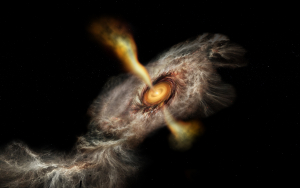
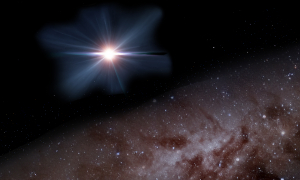
Astronomers Detect Earliest and Most Distant Blazar in the Universe
A groundbreaking discovery has revealed the presence of a blazar—a supermassive black hole with a jet pointed directly at Earth—at an extraordinary redshift of 7.0. The object, designated VLASS J041009.05−013919.88 (J0410−0139), is the most distant blazar ever identified, providing a rare glimpse into the epoch of reionization when the universe was less than 800 million years old. This discovery challenges existing models of black hole and galaxy formation in the early cosmos.
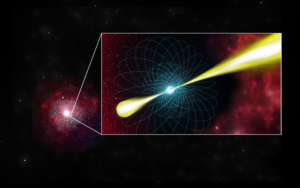
Old Data, New Tricks Discover Pulsar in Galactic Plane
A team of astronomers has found a new tool to discover pulsars. Pulsars are rapidly rotating neutron stars that blast out pulses of radiation at regular intervals ranging from seconds to milliseconds.
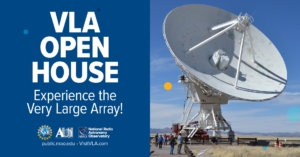
The Very Large Array to Host Spring Open House Event on April 20, 2024
The VLA Spring Open House promises a day filled with enriching experiences, including guided tours, captivating talks, educational activities, and a variety of local food options.
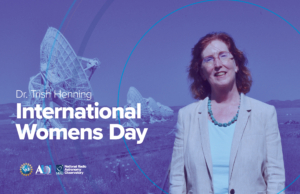
Dr. Patricia (Trish) Henning: Leading the Way in Radio Astronomy
This International Women’s Day, the National Radio Astronomy Observatory (NRAO) celebrates the selection of Dr. Patricia (Trish) Henning as the next Associate Director for New Mexico Operations
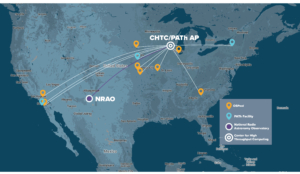
Astronomers & Engineers Use a Grid of Computers at a National Scale to Study the Universe 300 Times Faster
Looking for a more efficient way to process a particularly large VLA data set, to produce one of the deepest radio images of the Hubble Ultra Deep Field (HUDF), made famous by the Hubble Telescope, NRAO staff decided to try a different approach.





